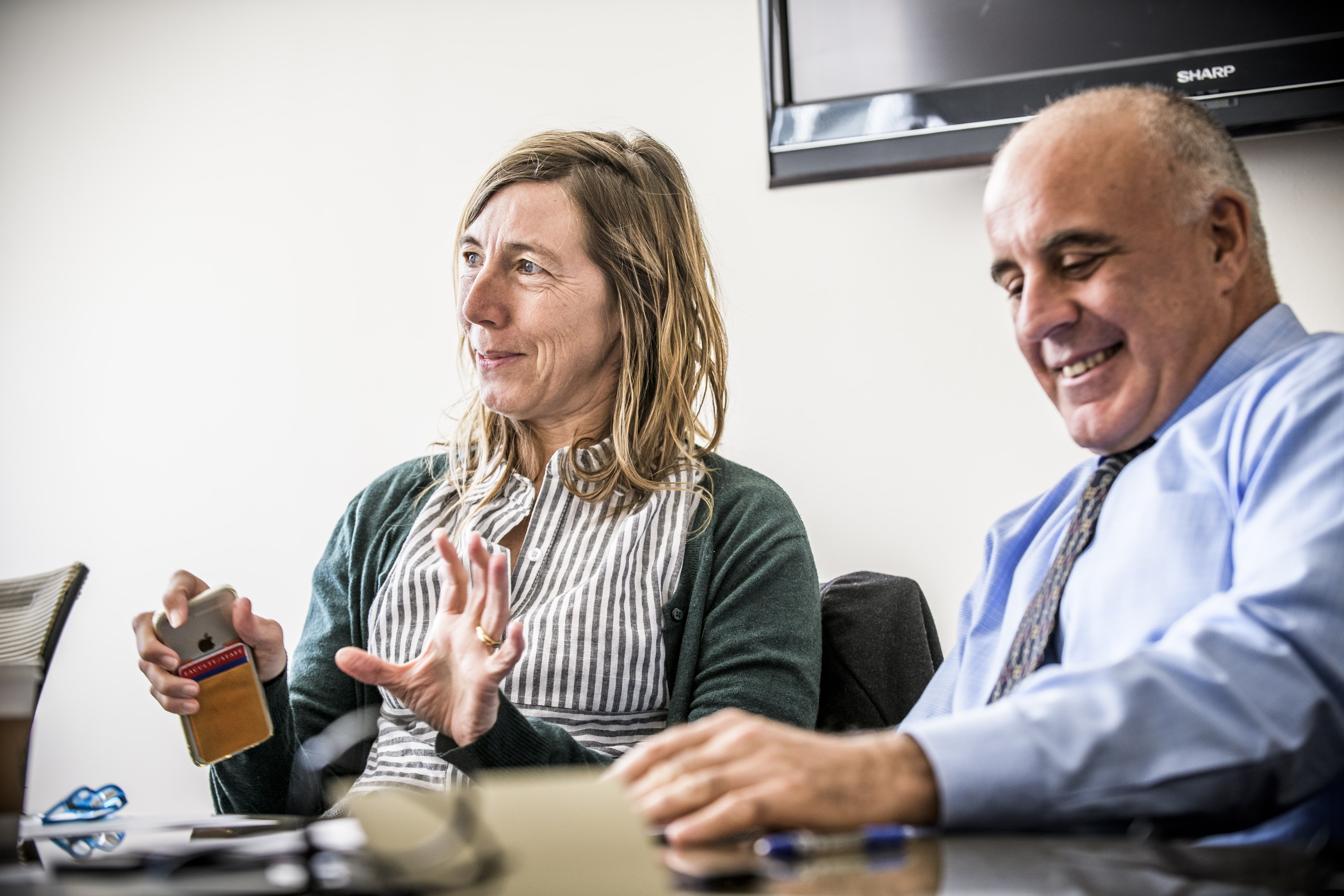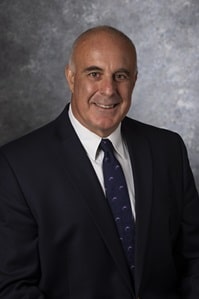A New Epoch in Engineering: An Interview with Civil Engineering Professor Nicos Makris

As society becomes increasingly transient, we need structures that can withstand not only the Earth's natural shifts, but the impact of human action as well. How will transportation systems, buildings, and water systems handle the changing demands of increasing populations as climate change makes the earth more volatile? Addressing these issues is a primary concern of today’s civil and environmental engineers.
Dr. Nicos Makris is the Addy Family Centennial Professor in Civil Engineering at Southern Methodist University. We recently spoke with him about his work in civil engineering and what led him to a career teaching in the Civil and Environmental Engineering Department at SMU. Our conversation was fascinating and enlightening, as he shared about his important research in seismic evaluation and structural design, and where he thinks the field of engineering is headed in the future.
 What courses do you teach at SMU, and how long have you been teaching here?
What courses do you teach at SMU, and how long have you been teaching here?
I began teaching at SMU in August 2018, when I joined the CEE Department as the Addy Family Centennial Professor in Civil Engineering. I have taught the undergraduate course in Structural Analysis as well as graduate courses in Structural Dynamics and Earthquake Engineering.
Did you always want to work in the field of civil engineering, or did you have other plans?
Growing up, my father was a civil engineer in Athens, Greece, so I learned about the culture of civil engineering from my early days of high school. As an undergraduate student at the National Technical University of Athens, I also worked in my father’s consulting office. I soon realized that I was more attracted to research than design. Then I moved on to graduate school and pursued an academic career.
What initially interested you in teaching at the graduate level? What brought you to SMU?
I have been teaching graduate courses since August 1992, when I started my academic career as an Assistant Professor at the University of Notre Dame in Indiana. I was attracted to SMU, partly because of the university’s commitment to education and research that serves the interests of the society, and partly because of SMU’s potential to become a leading national institution.
What area of research do you specialize in within the field of civil engineering?
My research interests include the design and protection of structures against natural and man-made hazards, the analysis and design of seismic isolated and rocking structures—tall bridge piers, rocking walls in buildings, and historic structures—together with soil-structure interaction. I am also interested in viscoelasticity, rheology, and applied mathematics.
From 2003-2009 I directed the reconstruction of the Temple of Zeus at Nemea—a 4th century BC classical temple in Greece.
What research have you performed at SMU? Do you have a favorite research project?
At present, our research efforts focus on the seismic response and protection of tall buildings and other flexible structures. Prior to joining SMU, during my years teaching in California and in Greece, my research efforts focused on the seismic design and response-modification of bridges. Throughout my career, I have done research in structural/earthquake engineering and structural mechanics/dynamics.
What do you most think is most unique about the Civil Engineering program and the department at SMU?
While the civil engineering program at SMU is small, it has a diverse and high-quality faculty that conducts research that is relevant to society—while emphasizing innovative and quality education. As a result, our program attracts top undergraduate and graduate students. More recently, there is a growing number of postdoctoral scholars who are joining our research groups.
Why do you think civil engineering is a relevant and valuable field to study?
Civil engineering is a three-century-old discipline shaped by the seminal works of French engineers during the period of the enlightenment, such as Pierre Couplet, Jean-Rodolphe Perronet, Augustin Coulomb, and Claude-Louis Navier. In modern times, it remains a fascinating engineering discipline that is central to the interests of society.
The rapid increase of Earth’s population, in association with the growing trend of people moving towards the coasts, is a constant source of new challenges in transportation, environmental, and structural/geotechnical engineering. Addressing these emerging challenges in association with the occurrence of extreme loads due to climate changes renders modern civil engineering an essential and relevant field of study.
What research areas are most popular among the students?
The traditional fields of transportation, environmental, and structural/geotechnical engineering as they have evolved with advances in experimental methods, numerical methods, and analytical schemes offer various popular research areas that attract top students.
Are there any emerging trends or developments in the field that you find exciting?
Our current society is characterized by an unprecedented ability to produce and store breathtaking amounts of data and, much more importantly, by the ability to navigate across them in such a way as to distill from them useful information. This has now reached the point of spawning a separate discipline, so-called big data, which has taken the scientific and business domains by storm.
Like all technological revolutions, the management of big data goes far beyond the scientific realm, reaching down into deep epistemological questions: Are we facing a new epoch in which the power of data renders obsolete the use of traditional engineering analysis and the scientific method as we have known it since the period of the enlightenment?
My view is that modern civil engineers need to develop a reasonable amount of skills to navigate across big data so that they can distill from them useful information. However, they should continuously train themselves to develop and gain physical insight from experimental campaigns, theoretical analysis, and physically-motivated interpretations, based on the use of rigorous mathematics, physical modeling, and engineering judgment.
Be part of the exciting advances in engineering at SMU!
The Lyle School of Engineering at Southern Methodist University is proud to offer several advanced degrees in civil and environmental engineering and sustainability and development—all of which are available entirely online or in a customizable hybrid format. Our expert faculty guide students through innovative research and hands-on experiences to equip them with the knowledge and skills needed to advance their careers and leave a lasting impact on the field of engineering.
If you’re interested in shaping the future of engineering, we invite you to download the guide below or reach out to us and request more information!

